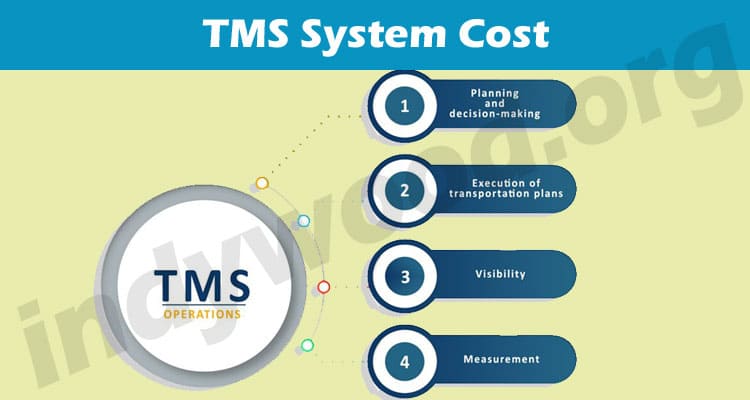How Much Does a TMS System Cost: It is becoming increasingly common for transportation companies to use a TMS. Using massive data volumes, such a solution enables all supply chain links to be effective. As a result of the increased efficiency, businesses can save money at every step of the supply chain. TMS solutions can assist your company go to the next level of cost-efficiency. For today’s logistics companies, a TMS is a must-have. Approximately 34% of firms already use such systems, which is expected to rise by 50% by 2020.
What are the features of a good TMS?
Among the essential characteristics that a reputable TMS should have are the following: One of the most critical aspects of contract management is
- With a TMS system, your contracts are processed more quickly, you receive warnings when your agreements are ready to expire, and you can follow contracts in real-time. TMS systems facilitate the movement of documents through your organization. 2. Car park/freight settlement management:
- With a TMS system, your contracts are processed more quickly, you receive warnings when your arrangements are ready to expire, and your managers can track contracts in real-time. Improved document flow is achieved through the use of TMS systems. Reports and analytics that are delivered on time:
- Through up-to-date software analytics, TMS systems assist business owners in increasing their organizational efficiency. Improve your services by receiving frequent updates on shipment data, tariffs, market pricing, etc.
The cost of implementing a TMS
When discussing the cost of transportation solutions, you must choose between pre-made or bespoke systems. Fixed prices are required for every unit linked to a ready-made solution.
Because of this, the cost of software, for starters, can be as low as US$36-40 000 in the first year, but as the company (like Go Freight Hub) grows, the price can rise to as high as US$900-1,000,000 in the next five years. If a company decides to use a bespoke system, it will cost between $130,000 and $150,000 at the outset, but costs will only rise gradually over time, regardless of how many units are linked to the TMS. Your organization might pay as little as US$300-400,000 over five years, which is roughly 70% less than what ready-made solutions demand.
Investing in a warehousing and logistics business comes with a great risk. You need to do a lot of research in order to become successful in this field. One of the things you should first check is the perfect software that can automate and organise processes. So if you don’t have the complete guide yet, and are still confused on which system to use which produces invoices or pallet delivery quotes automatically, then here’s the right article to read.
End-price influencing variables
With a TMS system, you may expect a first-year cost of up to US$150K and a five-year cost of between $300K and $1M. What are the most important determinants of price in the market?
- Cloud/on-premises vs. ready-made vs. custom:
- Number of internal and external customers
- There are three carriers. Customers’ Count Software modules are counted
- Applied new technology (AI, block chain, etc.)
- The best way to meet the needs of business owners is to talk over all of their requirements with a team of skilled experts.
TMS systems’ most recent trends
- The advantages of a transportation management system (TMS)) are clear, yet TMS systems are constantly evolving. Trends like these are in high demand right now:
- The decentralized ledger of the block chain. This system creates a command chain that is impenetrable to anyone in the middle of it. In addition to providing the most outstanding level of security, block chain-based TMS solutions may be used to create pre-built payment ecosystems for businesses.
- An enormous amount of data. Business owners may utilize the technology to make accurate predictions about the volume of warehouses and their shipment times.
We are in the age of Artificial Intelligence and Machine Learning. With AI-based TMS systems, errors are quickly identified and rapidly adjusted to circumstances. Artificial intelligence is set to become synonymous with advancement.
Modern TMS management systems must be able to incorporate new and groundbreaking technologies as they become available, and this is no exception.
Since our reliance on transparency and fluidity in logistics and supply chains is growing, these systems must be connected. There is no better foundation for this than cloud architecture.


